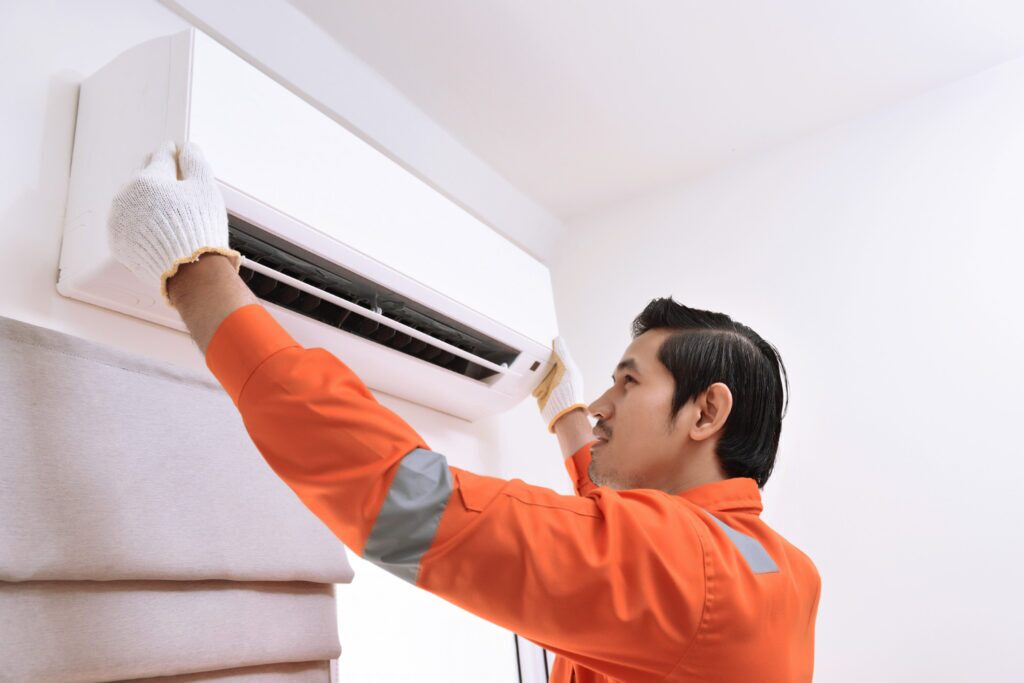Tampa summers can be unforgiving, with temperatures climbing fast and staying high well into the evening. A working AC isn’t a luxury — it’s a necessity. When your unit suddenly refuses to turn on, it doesn’t just create discomfort; it can quickly turn your home into an oven. In these situations, it’s natural to feel stressed or unsure about what to do next, especially during a heat wave when staying cool becomes urgent.
Before calling in help, there are a few quick things you can check yourself. These steps may seem simple, but sometimes the fix is easier than expected. Knowing where to start can save you valuable time and get your house back to a livable temperature without delay. Here are some fast checks that can make a big difference when your AC won’t kick on during Tampa’s peak summer heat.
Check Your Thermostat Settings
Your thermostat is the control center for your entire AC system. If your cooling system isn’t turning on, this is the first place to check. Many problems that seem serious actually begin with this small device.
Here’s what to look for:
– Make sure the thermostat is set to “cool.” It might seem obvious, but it’s surprising how often settings are accidentally changed during cleaning or by children.
– Lower the temperature by a few degrees to make sure it’s below the current room temperature.
– Replace the batteries. Many wall thermostats run on batteries, and if they’re drained, the thermostat can’t communicate with your AC unit.
– Make sure the display is functioning. If the screen is blank or flickering, it’s likely an issue with power supply or internal wiring.
One Tampa homeowner recently made a weekend call thinking her AC was broken, only to discover the thermostat had been turned off during a furniture move. It’s easy to overlook, but this small device can cause big headaches if it’s not set properly.
Inspect the Power Supply
If your thermostat checks out, the next step is to make sure your AC is getting power. A lack of electricity to the unit will stop it from working completely, and power interruptions aren’t uncommon during summer storms in Tampa.
Here’s where to look:
– Inspect the power cord and plug. Make sure the unit is firmly plugged in and there are no damage signs.
– Check the circuit breaker. AC units draw a lot of power, and tripped breakers can interrupt their operation. Flip the breaker off and back on to reset it.
– Look around the condenser unit outside. If you hear a humming noise or see the fan trying to move, it’s likely a power-related issue.
It only takes one tripped breaker to render your AC useless, and this is often one of the simplest fixes. Resolving it may restore your cooling in less than a minute.
Examine the Air Filter
A clogged filter might not stop your AC from turning on altogether, but it can cause the system to overheat or freeze, which can then trigger safety shut-offs. When the unit struggles to pull in air due to built-up dirt, performance drops quickly.
To evaluate your filter:
– Remove the filter from its air return vent.
– Hold it up to the light. If you can’t see light shining through, the filter needs to be changed.
– Replace the filter with a clean one of the same size and type.
– Set a reminder to check the filter monthly during Tampa’s hotter months.
Dirty filters reduce airflow and pressure, making your system work harder. Over time, this stress can trip safety switches that power down the unit. Regular checks keep air flowing and components protected.
Inspect the Condensate Drain Line
Your AC doesn’t just cool air — it also removes moisture. That moisture needs a path to drain out, and that’s where the condensate line comes in. When functioning properly, it allows water to flow from your unit outside of the home. But if this line gets clogged with debris or algae, water buildup can activate a safety switch that keeps the unit from turning on.
If your AC system has shut down completely, it’s a good idea to check this line next. Most systems have a small PVC pipe running from the indoor air handler to the outside of the house. When this pipe gets blocked, it can cause water to back up or leak around the unit. This can trigger the float switch, which is designed to stop the AC from operating to prevent water damage.
Look for these early signs of a clogged drain line:
– Pools of water around your indoor AC unit
– Overflow from the condensate drain pan
– Moldy or musty smell near your vents or unit
– A gurgling sound when the AC is running
Some homeowners in Tampa notice that after rain or humidity spikes, their AC systems stop working even though the power and settings seem fine. That’s often because too much moisture combined with a neglected drain line created the perfect conditions for a blockage. Regular checks of this line keep water moving and stop shut-offs before they happen.
When to Call Our Professionals
If you’ve gone through all these steps and the AC still won’t turn on, it likely means there’s a deeper issue that needs expert attention. Some problems like damaged capacitors, wiring issues, low refrigerant, a faulty compressor, or internal electrical faults can’t be identified without the right tools and technical knowledge.
Trying to fix these parts without proper training can lead to bigger repairs or damage. That’s why it’s best to rely on our technicians when the basic checks don’t solve the problem. They’ll be able to run a complete diagnostic, test components safely, and pinpoint exactly what’s stopping your unit from turning on.
When your AC doesn’t respond and temperatures in Tampa are climbing, getting timely attention keeps your home comfortable and your system protected from further damage. Remember, an issue that seems small might worsen quickly in high heat conditions.
Keeping Your AC Reliable Through Tampa’s Summer Heat
Tampa’s heat waves can put any AC system to the test, and when the unit stops responding, the situation becomes urgent. Starting with simple checks can help you zero in on what’s wrong, but if those don’t work, it’s smart to bring in professionals who can take a closer look.
Catching small problems early through regular maintenance can prevent those mid-season breakdowns altogether. Keeping filters clean, clearing blockages, and booking a seasonal AC tune-up in Tampa can make a big difference in how your system performs all summer long. Getting ahead of issues today means fewer surprises tomorrow — and a cooler, safer home when you need it most.
If repeated interruptions in your AC’s performance have become a concern during Tampa’s hot spells, now is the time to consider an AC tune-up in Tampa to help maintain reliable performance and prevent unexpected breakdowns. Rely on FL HVAC Team to provide the expertise you need to extend the lifespan of your system while ensuring your home remains comfortable. For a quick estimate or to book a service visit, please contact us today.

